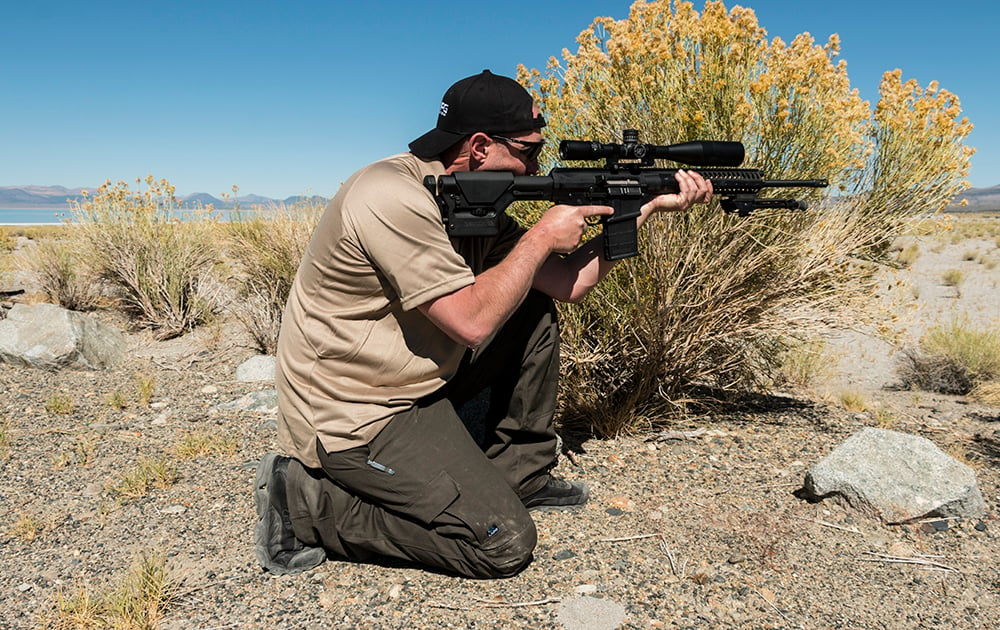
A How-To Guide: Becoming A Police Officer After the Military
Transitioning from the military to civilian life can be overwhelming. The civilian world is completely different, and the idea of going to an office job is usually hard to swallow. Many military service members choose careers in law enforcement because it’s more regimented like military life and easier to adapt to. Here’s how to become a police officer after the military.
Challenges Military Members Face When Transitioning from the Military
Military veterans face some challenges that civilians don’t. They’re not sure how to show employers how their skills translate from the military to the civilian world. Many suffer PTSD or traumatic brain injuries and think that those diagnoses may keep them from getting jobs.
Some don’t like being type-cast into police careers just because of the structure of the military and the skills they learn. In fact, law enforcement may not be the best for some armed forces members because you’re still exposed to tension, stress, anxiety, and violence on a regular basis.
But if you’re interested in a law enforcement career, here are some ways to transition from the military into the job of a police officer.
Transition Assistance Program (TAP)
TAP provides training and jobs to military members within six months of their retirement or separation. They offer three-day workshops that cover topics like:
- Job search strategies
- Career exploration
- Interview, cover letter, and resume preparation
Any military member can benefit from these Transition Assistance Program workshops.
Get Your Verification of Military Experiences and Training (VMET) Form DD 2586
The branch of the military that you serve is required to provide you with the DD 2586 to verify your training and experience. The VMET details your skills, experience, and knowledge and how they relate to possible civilian career paths.
Define Your Transferrable Skills
Think about how your military skills translate to a civilian job. Did you work as a military police officer, or maybe you were a supervisor? Were you a Navy seal or Army ranger? These are all skills that work well in law enforcement as well. You could eventually specialize in a law enforcement career path as a supervisor or a SWAT team member.
Learn How to Write KSA Statements
KSA stands for Knowledge, Skills, and Abilities. Many state and federal jobs require a brief narrative that summarizes the attributes that make you qualified for a job. Many of these positions specifically outline the attributes that apply to that particular job, so you should customize your KSA statement so that it matches those requirements. But for a starting off point, you can draft a single KSA statement that you can tailor to each position you apply for.
Find Employers that Want to Hire Armed Forces Members
Being a military service member looking for a job can be both a blessing and a curse. Some employers aren’t military-friendly, while others see the benefits of hiring people who served in the military. Thankfully, most police departments love recruiting armed service members because of their discipline, loyalty, and training. Plus, you’ll find camaraderie with other co-workers who retired or separated from the military.
Start Using Civilian Speak Instead of Military Jargon
To fit in with civilian life, you need to speak the civilian language. While jobs like law enforcement use military time and jargon, they still use a limited amount of those terms. Also, you don’t have to address everyone as Ma’am or Sir. Usually, their first name will do.
Don’t worry, you can still talk military jargon with fellow military friends, and many police officers understand the lingo.
Make Sure Your Background is Clean
Most law enforcement jobs include rigorous background checks, including a polygraph test. There will likely be drug testing as well. You need to be honest throughout the process. If you vandalized a park bench as a juvenile, then that probably won’t eliminate you from the job process.
You should consider if you’re eligible for a career in law enforcement before you apply and go through the whole process. It’s a waste of time for both you and the agency if your background doesn’t cut it.
Whether you put down your sturdy tactical boots and tough tactical gear for a job in law enforcement or corporate America, the transition to civilian life can be difficult. But these tips will help you navigate civilian life easier and get a job that you can be as proud of as the one you held in the military.



